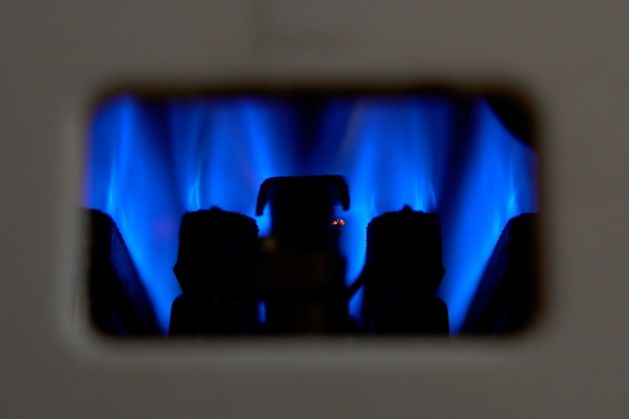
Government accused of ‘cashing in’ on cost-of-living crisis as figures show tax raised €1bn last year
For a household using gas, the total carbon tax bill will rise by €17 to around €138 a year. People using home-heating oil will end up paying an extra €19 to fill a 900-litre home-heating oil tank after the May Day rise in the tax. Thursday’s rise comes after it was revealed that the State’s take from carbon taxes hit €1bn for the first time last year.
Aontú leader Peadar Tóibín called for a review of the taxes on electricity, gas, home-heating oil, petrol and diesel after it emerged some taxes on energy and fuel have surged.
Figures supplied to him by Finance Minister Paschal Donohoe show carbon tax receipts have doubled in the last five years.
This led Mr Tóibín to accuse the Government of “cashing in” on the cost-of-living crisis at a time when energy bills have increased.
Filling a 900-litre home-heating oil tank will now cost households around €160 in carbon tax in total.
However, this comes at a time when heating oil prices have fallen heavily, due to a sharp fall in crude-oil prices.
The cost of 1,000 litres of the fuel is approaching €880, down from €1,000 at the start of the year, according to price-tracking website Oilprices.ie.
Higher carbon taxes on petrol and diesel were imposed soon after the Budget in October, adding around 3c to the cost of a litre of both motor fuels.
The tax now adds up to around 17c on every litre of petrol and diesel.
Carbon tax is applied to carbon-emitting fuels such as coal, oil, petrol, diesel and natural gas.
Introduced in 2010, the tax is intended to reduce carbon dioxide emissions and is part of Ireland’s strategy to support a greener and cleaner environment.
It was raised by €7.50 to €63.50 per tonne of CO2 in last October’s Budget.
The rate of carbon tax is set to increase further in increments to €100 per tonne by 2030.
However, as is now customary, the increase was postponed until May on home-heating fuels such as natural gas and home-heating oil.
The carbon tax doesn’t apply to electricity, where the PSO (Public Service Obligation) levy is applied.
This is currently just over €42 a year, and is largely used to subsidise wind farms.
Daragh Cassidy, head of communications at price-comparison and switching site Bonkers.ie, said home-fuel prices were already at record levels.
“Gas prices are still around double what they were before the war in Ukraine broke out,” he said.
Recent figures from the energy regulator showed that a quarter of all household gas customers were in arrears, he added. This works out at more than 171,000 households.
“So a further hike in gas costs is probably the last thing people need to hear,” Mr Cassidy said.
“Gas customers will now be paying around €138 a year to the Government in carbon tax alone.
“And by the end of the decade, this will increase to around €220 a year as the tax is set to increase to €100 per tonne by 2030.”
Mr Cassidy said that to offset the tax, the easiest step for gas customers to take would be to switch supplier.
Customers who switch can get discounts of more than 20pc from their new supplier for an entire year, which would more than negate the tax increase.
#carbon #tax #increase #means #household #fuel #costs #set #rise







